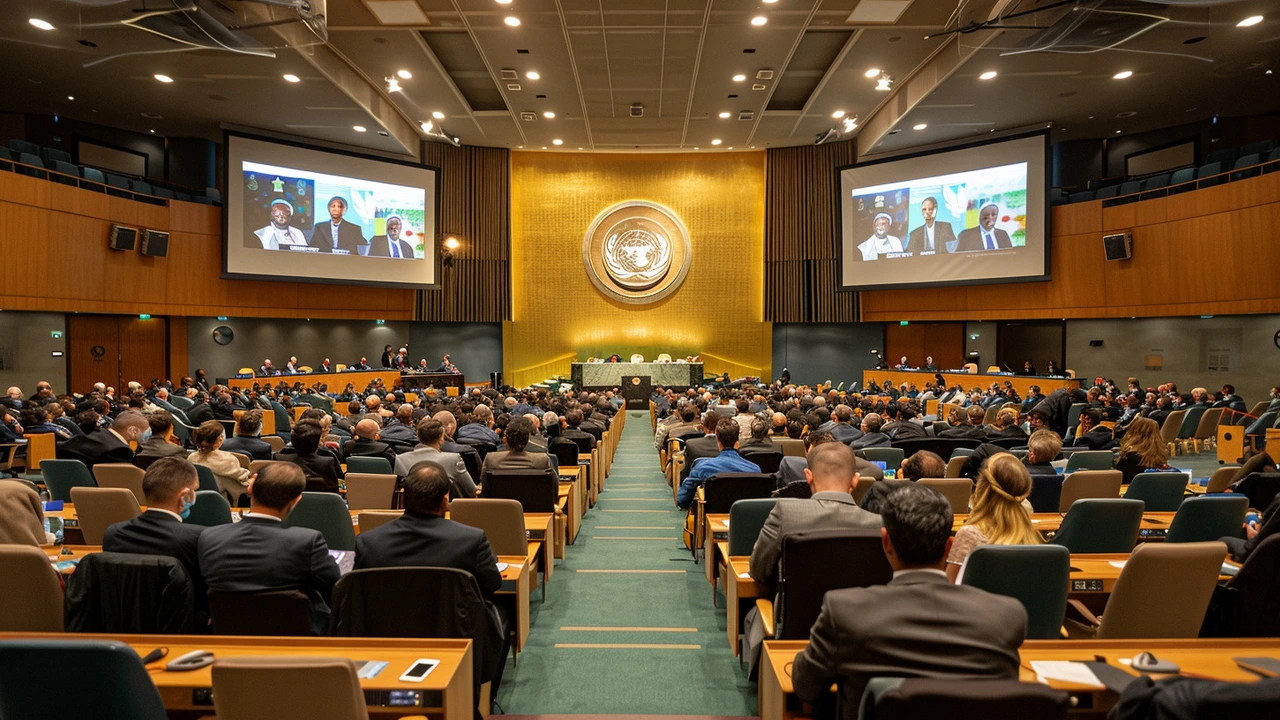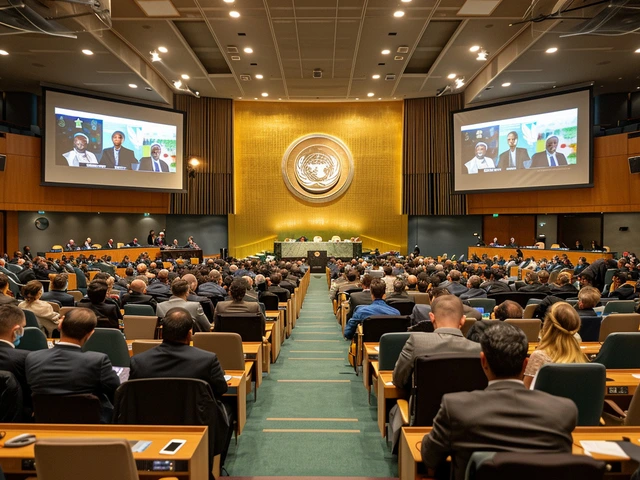Pakistan, Panama, Somalia, Denmark, and Greece Secure Spots as UNSC Non-Permanent Members for 2025-2026
In a notable stride for international diplomacy, five nations have been elected as non-permanent members of the United Nations Security Council (UNSC). The countries—Pakistan, Somalia, Denmark, Greece, and Panama—secured their seats following a secret ballot conducted by the United Nations General Assembly. Their tenure is set to span from January 1, 2025, to December 31, 2026. This election signifies not just a procedural change but a vote of confidence from the international community in these nations' ability to uphold global peace and security.
Pakistan’s Eighth Stint in the UNSC
Remarkably, Pakistan secured 182 votes, earning it a spot as a non-permanent member for the eighth time in its history. This achievement is widely celebrated in Pakistan, with Prime Minister Shehbaz Sharif expressing immense pride in this victory. He highlighted Pakistan's unwavering commitment to contributing to global peace, stability, and cooperation among nations. Additionally, Pakistan's Deputy Prime Minister and Foreign Minister, Ishaq Dar, reiterated the nation’s dedication to the UNSC’s mission of maintaining international peace and security.
Pakistan's long-standing experience in the UNSC is a testament to its diplomatic prowess and commitment to the principles outlined in the UN Charter. As South Asia’s only nuclear-armed nation, Pakistan's role in the UNSC is critical, given its strategic importance in regional and international geopolitics. The country has consistently advocated for peaceful resolutions to conflicts and has been involved in various peacekeeping missions across the globe.
Somalia: A Track Record of Peace Efforts
Somalia emerged as the top contender in the African States category with 179 votes. This election is a significant moment for Somalia, which has been striving for stability and peace within its borders while contributing to peace efforts regionally and globally. Somalia’s presence in the UNSC is a positive step towards reinforcing its role in international peacekeeping and conflict resolution.
Somalia's election to the UNSC also signifies an endorsement of its ongoing efforts to rebuild after decades of conflict. The country has been gradually regaining its footing, with international support aiding in its development and stabilization processes. As a UNSC member, Somalia will have a crucial platform to voice its perspectives and actively participate in discussions pertinent to international peace and security.
Denmark and Greece: Pillars of European Stability
In the Western European and other States category, Denmark and Greece received 184 votes each, underscoring their significant roles in regional and global stability. Denmark and Greece are both known for their robust democratic institutions and active involvement in international humanitarian efforts. Their election to the UNSC is expected to bring a renewed emphasis on human rights, democracy, and cooperation in addressing global challenges.
Denmark’s strong focus on environmental sustainability and climate change aligns well with the UNSC’s growing attention to these issues as global security concerns. Likewise, Greece’s strategic position in southeastern Europe and its historical experience in international diplomacy ensure that it will be a valuable participant in the Security Council’s deliberations.
Panama: A Leader in Latin American Diplomacy
Panama's election to the UNSC with 183 votes in the Latin American and Caribbean States category highlights its significant diplomatic role in the region. Panama has been an advocate for peaceful conflict resolution and a promoter of regional cooperation. Its strategic location as a central hub for international maritime trade gives it a vital perspective on global economic and security matters.
With its election, Panama aims to address various global challenges, including illicit drug trafficking, organized crime, and climate change, from a Latin American perspective. Panama's ability to bridge dialogues between different cultural and political realms within the hemisphere will be crucial for fostering mutual understanding and cooperation.
The Significance of the Election
This election is more than a procedural necessity; it symbolizes the trust and expectations the international community places on these nations to guide and maintain global peace and security. Each of the newly elected members brings a unique perspective and set of experiences to the table, enriching the UNSC’s deliberative processes.
The UNSC, tasked with making pivotal decisions on international peace and security, requires its members to demonstrate unwavering commitment to the principles of the UN Charter. The newly elected non-permanent members are expected to contribute their expertise, foster dialogue, and implement initiatives that promote peace and stability across the globe.
The role of non-permanent members is crucial in balancing the power dynamics within the UNSC, providing a diverse array of viewpoints that ensures more comprehensive and inclusive decision-making. The election of Pakistan, Somalia, Denmark, Greece, and Panama reinforces the importance of geographical and political representation within the Security Council.
With their extensive track records in international diplomacy, these five countries are well-prepared to take on the challenges that come with UNSC membership. As they commence their term on January 1, 2025, the world will be watching closely, expecting these nations to uphold the principles of peace, security, and cooperation that form the bedrock of the United Nations.



Leave a Comments